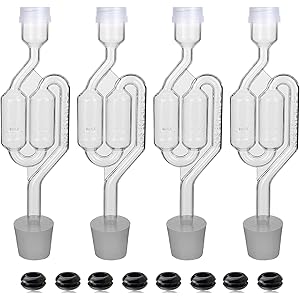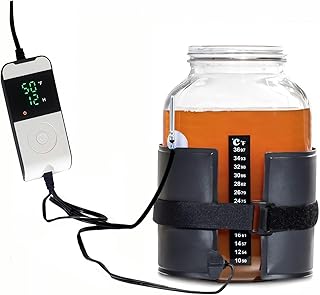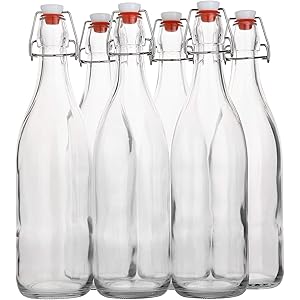What is a Beer Kettle?
A beer kettle, often referred to as a brew kettle, is an essential piece of equipment in the beer brewing process. It is primarily used for boiling the wort, which is the liquid extracted from the malted grains during the mashing process. The kettle is designed to withstand high temperatures and is typically made from stainless steel or aluminum, ensuring durability and resistance to corrosion.
Functionality of a Beer Kettle
The primary function of a beer kettle is to boil the wort, which serves several critical purposes in brewing. Boiling sterilizes the wort, eliminating any unwanted microorganisms that could spoil the beer. Additionally, it activates enzymes that convert starches into fermentable sugars, which are crucial for the fermentation process. The boiling stage also allows for the addition of hops, which contribute bitterness, flavor, and aroma to the final product.
Types of Beer Kettles
Beer kettles come in various types, each designed for specific brewing needs. The most common types include electric kettles, gas-fired kettles, and induction kettles. Electric kettles are convenient for homebrewers, providing precise temperature control. Gas-fired kettles are favored for their ability to reach high temperatures quickly, while induction kettles offer energy efficiency and fast heating times. Each type has its advantages, depending on the scale and style of brewing.
Size Considerations for Beer Kettles
When selecting a beer kettle, size is a crucial factor to consider. Kettles are available in various capacities, typically ranging from 1 gallon for homebrewers to over 20 gallons for commercial operations. The size you choose should align with your brewing volume and frequency. A larger kettle allows for brewing bigger batches, while a smaller kettle may be more suitable for experimental brews or limited space.
Material and Construction of Beer Kettles
The material used in the construction of a beer kettle significantly impacts its performance and longevity. Stainless steel is the most popular choice due to its resistance to rust and corrosion, as well as its ability to withstand high temperatures. Some kettles may also feature a clad bottom, which improves heat distribution and prevents scorching of the wort. It’s essential to choose a kettle that meets your brewing needs while ensuring durability.
Get more content like this!
Sign up to receive updates and new terms first hand.
Features to Look for in a Beer Kettle
When purchasing a beer kettle, several features can enhance your brewing experience. Look for kettles with built-in thermometers for accurate temperature monitoring, as well as ball valves for easy draining and transferring of wort. Some kettles come with sight glasses, allowing you to monitor the liquid level without opening the lid. Additionally, consider kettles with a sturdy handle for safe lifting and pouring.
Cleaning and Maintenance of Beer Kettles
Proper cleaning and maintenance of your beer kettle are vital to ensure the quality of your brews. After each use, it is essential to thoroughly clean the kettle to remove any residue or buildup. Most kettles can be cleaned with hot water and a mild detergent, but avoid using abrasive cleaners that could scratch the surface. Regular maintenance checks for any signs of wear or damage will prolong the life of your kettle.
Common Mistakes When Using a Beer Kettle
New brewers often make mistakes when using a beer kettle that can affect the quality of their beer. One common error is not reaching a vigorous boil, which can lead to incomplete sterilization and off-flavors. Another mistake is adding hops at the wrong time, which can alter the intended bitterness and aroma. Understanding the boiling process and timing of hop additions is crucial for achieving the desired flavor profile.
Conclusion: The Importance of a Quality Beer Kettle
Investing in a quality beer kettle is essential for any brewer, whether a novice or a seasoned professional. A well-designed kettle not only enhances the brewing process but also contributes to the overall quality of the beer produced. By understanding the various aspects of beer kettles, brewers can make informed decisions that lead to successful brewing experiences.




